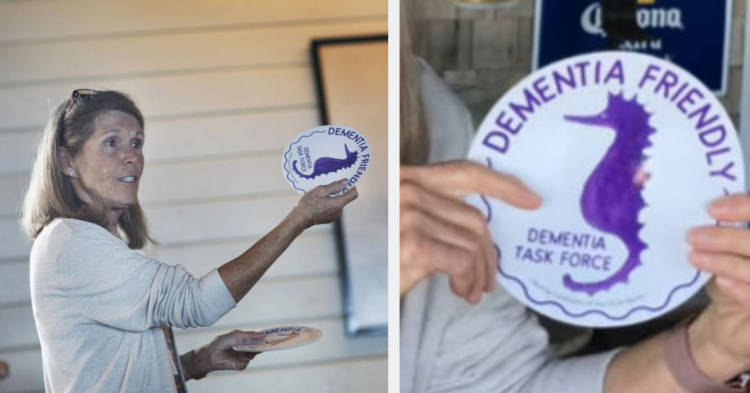It’s estimated that about 50 million people worldwide are currently diagnosed with a form of dementia and that number is only expected to increase in coming decades.
And yet unless you know someone with dementia, it’s hard to know how to recognize and help those with it.
Dementia isn’t a specific disease, but rather a catch-all term for diseases affecting memory and cognitive functions.

Alzheimer’s disease makes up 60-80% of dementia diagnoses, but there are many others that fall within the category.
Common symptoms include trouble with memory, communication, visual perception, reasoning and judgement, or the inability to focus. These make day-to-day activities very difficult to navigate.
Often, this results in those with dementia and their caretakers retreating from the world.

When there is a chance of getting lost in a mall or losing track of your belongings, it can be scary to venture beyond your home, especially if no one is around that knows how to help you. It’s lonely and isolating.
That’s why the Outer Banks Dementia Task Force has started their Dementia-Friendly Business program.

The initiative hopes to train employees of local businesses on how to help and serve customers who may have dementia.
Locations that have completed the training receive certificates for their employees and display a purple seahorse logo to indicate they are dementia-friendly.
The training is completely free to complete.

So far, 12 restaurants in North Carolina’s Outer Banks have completed the 20-minute program.
The goal is to educate employees on ways to make customers with dementia more comfortable, such as speaking more softly and ensuring they can properly help those who might be forgetful during the meal.
The seahorse logo is perfect for the project.

The Latin name for seahorse is actually Hippocampus ! So not only is it a cute mascot that’s easily recognizable, but it also relates to the part of the brain affected by dementia.
The task force’s current goal is to get at least 50% of the local restaurants to sign up for the training, but I really hope that they get 100% and that more communities start emulating them.
















































